Steel Helmet, The (1950)
“If you die, I’ll kill you!”
|
Synopsis: |
|
Genres, Themes, Actors, and Directors:
Response to Peary’s Review: He notes that “Fuller’s unsentimental, deglamorized portrait of war is highly atmospheric, tense” and — despite the extremely low budget — “realistic,” with “the character relationships, particularly those between Evans and Chun and Brodie … intriguing.” Made in just ten days on a budget of ~$100K, The Steel Helmet — Fuller’s third film, after I Shot Jesse James (1949) and The Baron of Arizona (1950) — was loosely based on journal entries made during his own time as a soldier. Fuller’s inclusion of a multi-ethnic cast allows him to touch upon topics otherwise undiscussed in Hollywood films at the time — such as Loo’s family being imprisoned in an internment camp during World War II, despite his own active involvement in the segregated Japanese-American 442nd Regimental Combat Team. “We have the same kind of eyes,” the North Korean soldier — known as The Red — goads him. Meanwhile, Edwards’ Cpt. Thompson — trained as a surgeon — must take subtle and not-so-subtle racist jabs at every turn. While chatting with Evans about his stint volunteering for a rifle outfit during WWII, for instance, Evans bluntly responds, “Yeah, that was to prove you guys could shoot besides drive trucks. I remember.” (Blacks were primarily relegated to logistics positions in the war.) When Edwards tells Evans he went back to school after WWII on the G.I. bill to study surgery, surly Evans retorts with: “Where? In a butcher shop?” Edwards seems to simply put up with such comments, though later we’re privy to some of his reasoning:
Fuller makes excellent use of sparse, fog-shrouded sets: … and his pulpy script is filled with zingy lines (most mouthed by Evans):
This indie classic remains a tense and gritty portrayal of the inherent insanity of war (and racism), and is worthy of multiple viewings. Notable Performances, Qualities, and Moments:
Must See? Categories
Links: |
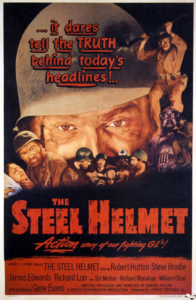
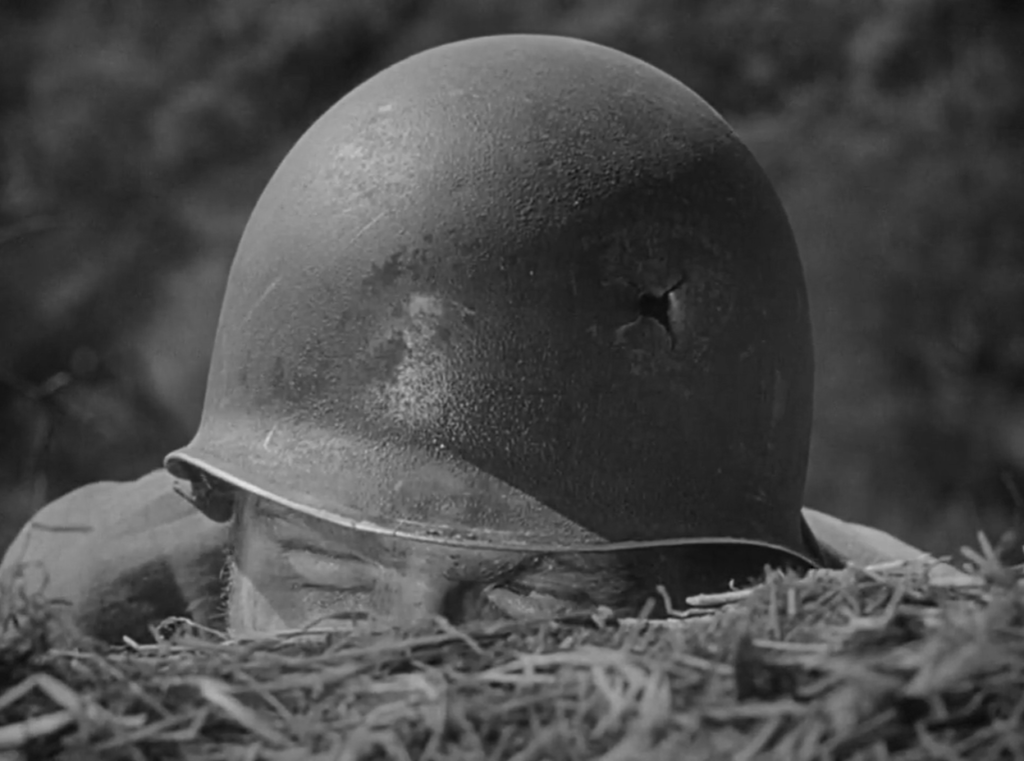
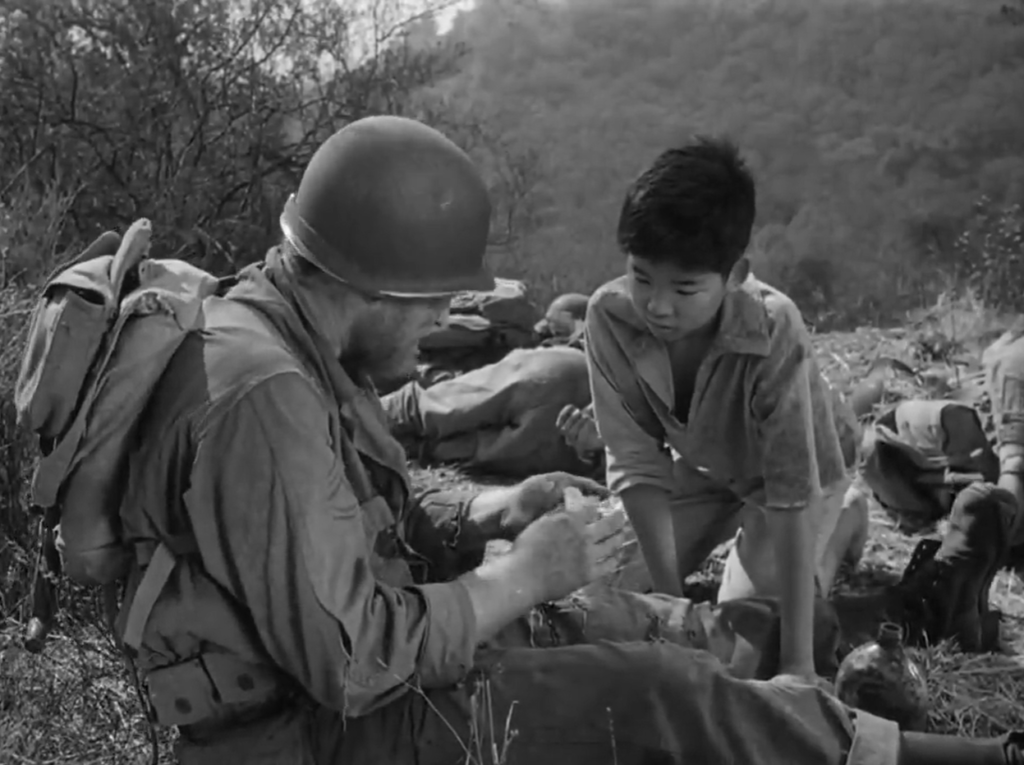

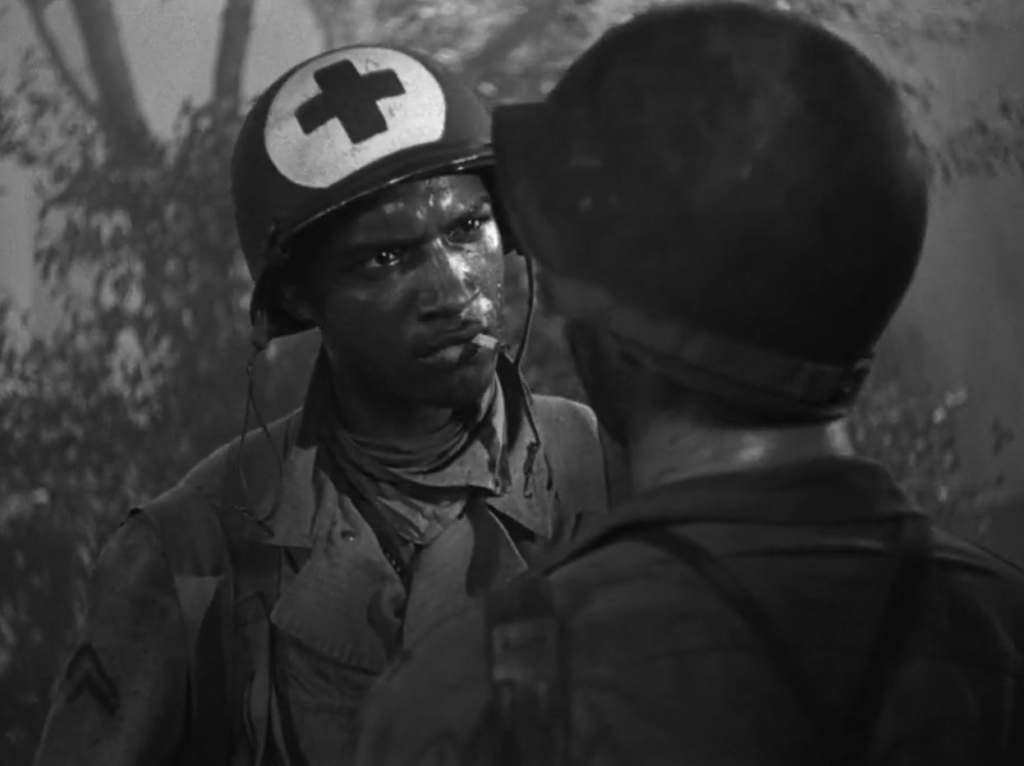
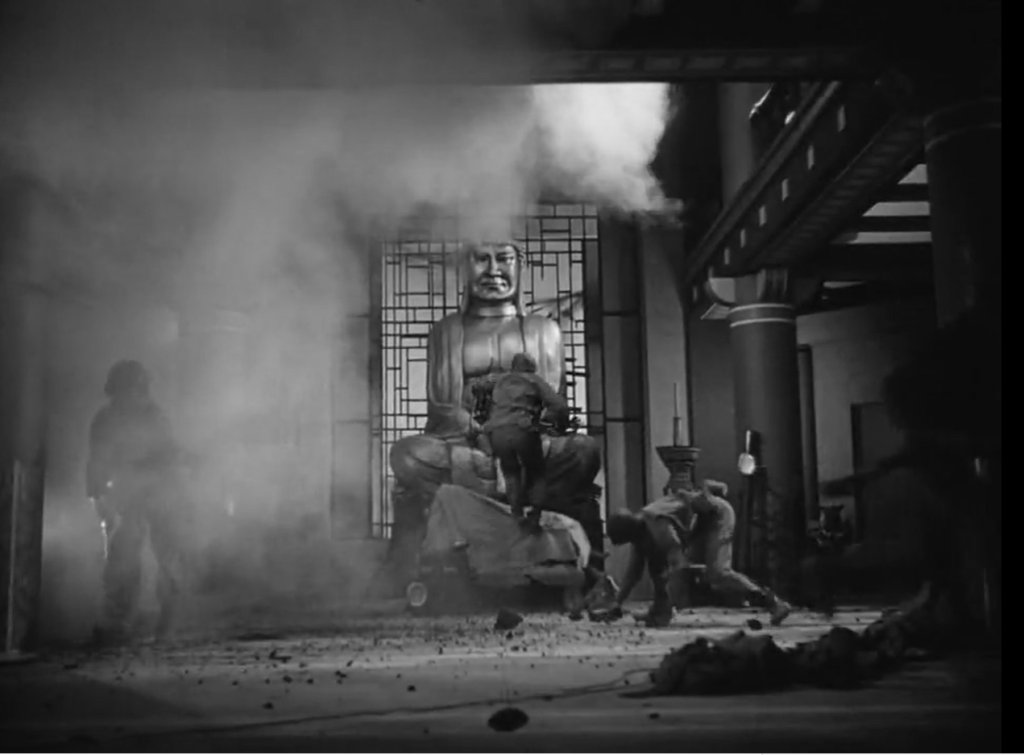

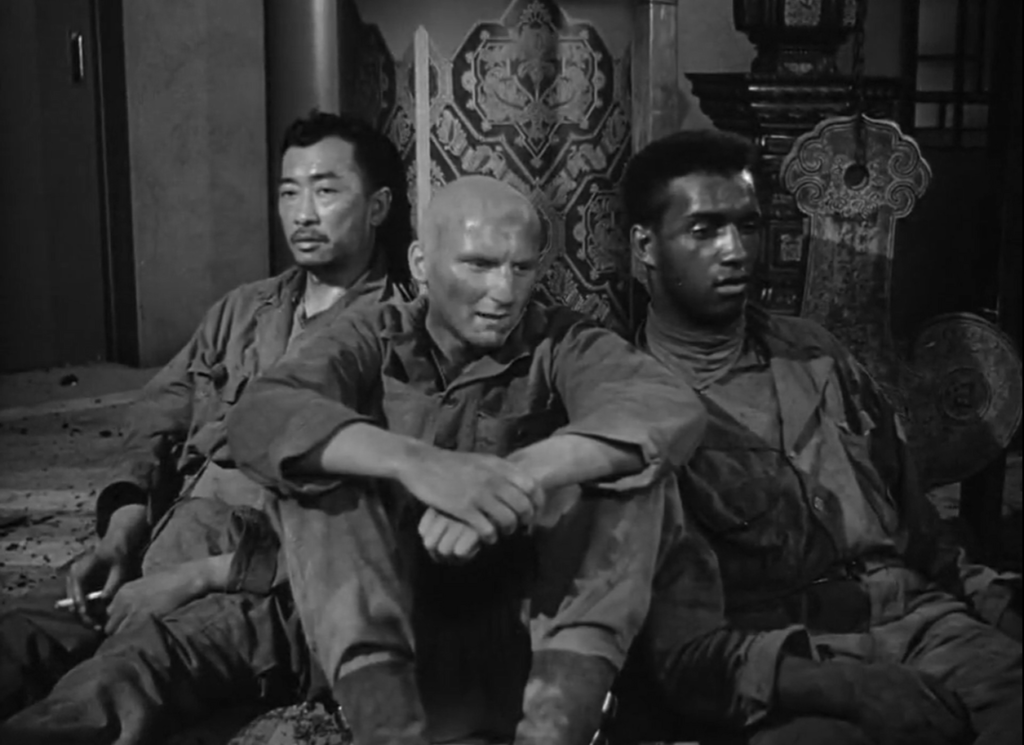
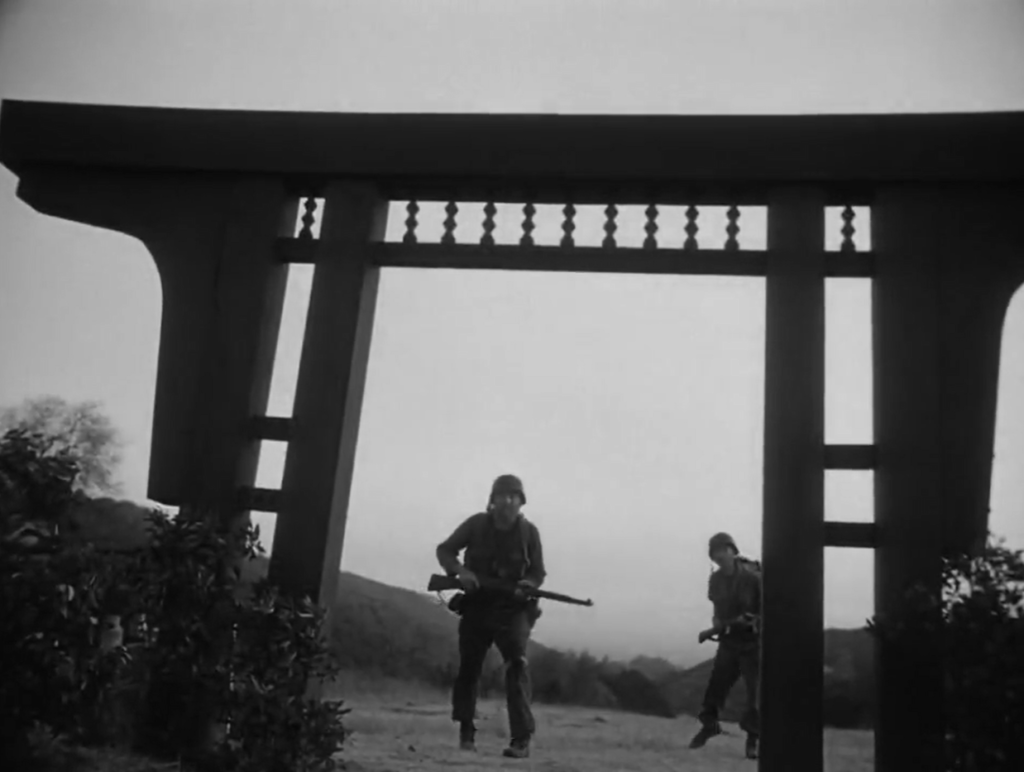
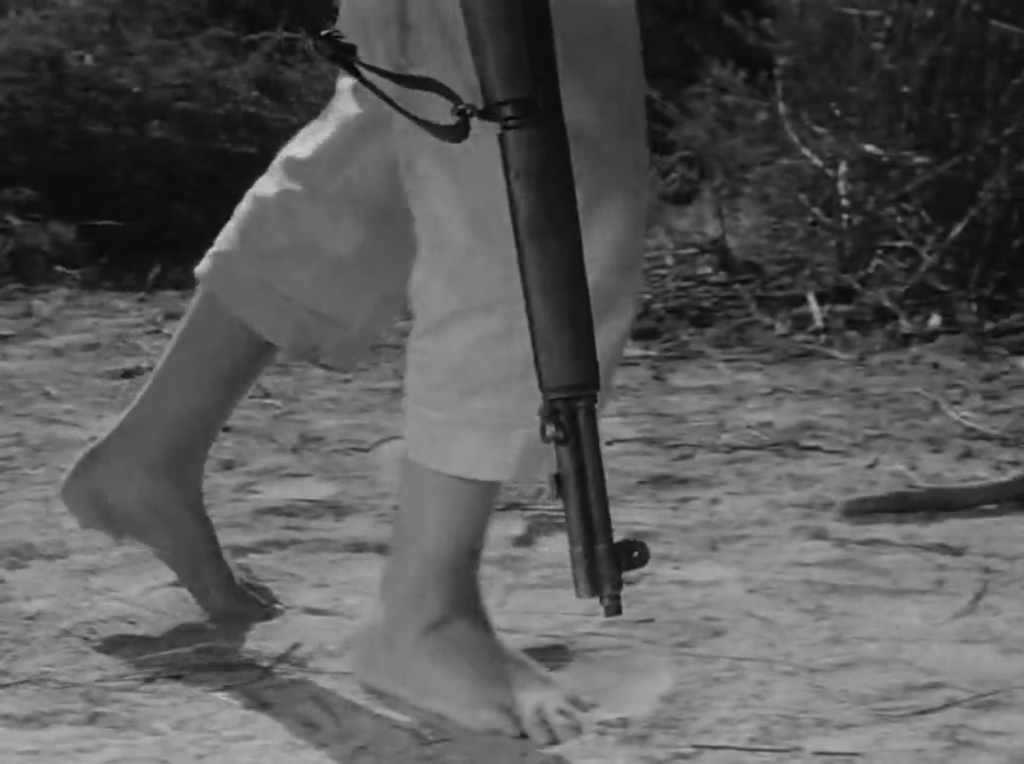
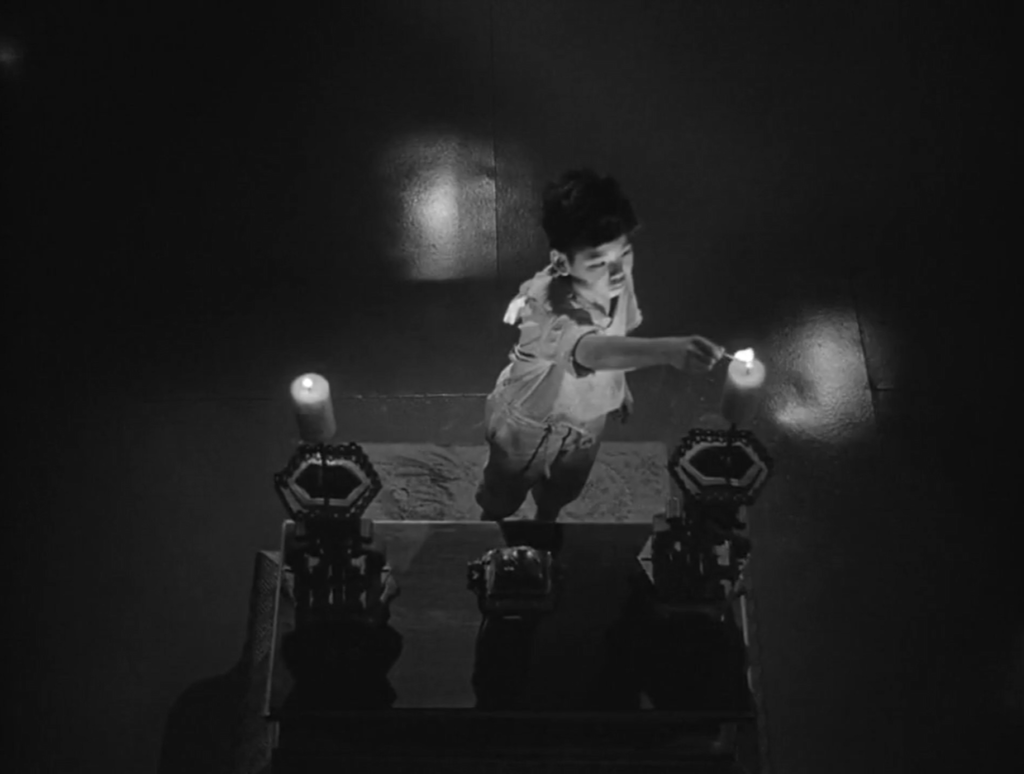
One thought on “Steel Helmet, The (1950)”
Rewatch. Must-see.
In agreement with the points mentioned. The film remains as strong as ever – particularly as a war film with a significant difference. It’s refreshing to watch Fuller’s uncompromised POV.